- News
- Reviews
- Bikes
- Components
- Bar tape & grips
- Bottom brackets
- Brake & gear cables
- Brake & STI levers
- Brake pads & spares
- Brakes
- Cassettes & freewheels
- Chains
- Chainsets & chainrings
- Derailleurs - front
- Derailleurs - rear
- Forks
- Gear levers & shifters
- Groupsets
- Handlebars & extensions
- Headsets
- Hubs
- Inner tubes
- Pedals
- Quick releases & skewers
- Saddles
- Seatposts
- Stems
- Wheels
- Tyres
- Tubeless valves
- Accessories
- Accessories - misc
- Computer mounts
- Bags
- Bar ends
- Bike bags & cases
- Bottle cages
- Bottles
- Cameras
- Car racks
- Child seats
- Computers
- Glasses
- GPS units
- Helmets
- Lights - front
- Lights - rear
- Lights - sets
- Locks
- Mirrors
- Mudguards
- Racks
- Pumps & CO2 inflators
- Puncture kits
- Reflectives
- Smart watches
- Stands and racks
- Trailers
- Clothing
- Health, fitness and nutrition
- Tools and workshop
- Miscellaneous
- Buyers Guides
- Features
- Forum
- Recommends
- Podcast
review
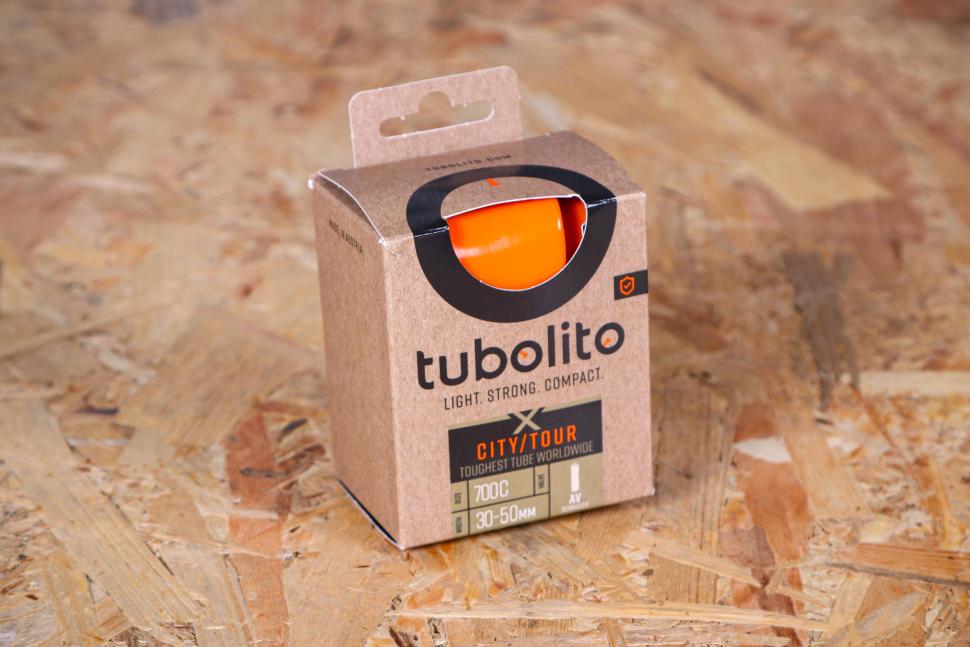 2021 Tubolite X-Tubo City-Tour Tube 1.jpg
2021 Tubolite X-Tubo City-Tour Tube 1.jpg£22.99
VERDICT:
Puncture-proof tubes that are lighter than butyl – they're ideal for wide tyres that don't have adequate protection
Has resisted punctures to date…
Lighter than butyl tubes
Easy to fit
One-year guarantee against punctures
Expensive
Weight:
146g
Contact:
At road.cc every product is thoroughly tested for as long as it takes to get a proper insight into how well it works. Our reviewers are experienced cyclists that we trust to be objective. While we strive to ensure that opinions expressed are backed up by facts, reviews are by their nature an informed opinion, not a definitive verdict. We don't intentionally try to break anything (except locks) but we do try to look for weak points in any design. The overall score is not just an average of the other scores: it reflects both a product's function and value – with value determined by how a product compares with items of similar spec, quality, and price.
What the road.cc scores meanGood scores are more common than bad, because fortunately good products are more common than bad.
- Exceptional
- Excellent
- Very Good
- Good
- Quite good
- Average
- Not so good
- Poor
- Bad
- Appalling
The Tubolito X-Tubo City/Tour promises to make punctures a thing of the past. This hardy orange inner tube, designed specifically for 30-50mm tyres, is better suited to more portly, commuter-type bikes that come into contact with road shrapnel on a daily basis, but it'd work well with other wide tyre bikes too. It's much more expensive than a regular butyl tube, and might not be worth the investment if you already have good quality puncture-resistant tyres, but if not, it's well worth considering.
Tubolito bills its X-Tubo City/Tour inner tube as 'the toughest tube worldwide', and has enough confidence in its product to offer a one-year warranty for all punctures.
> Find your nearest dealer here
Tubolito's goal was to produce a bicycle inner tube that cannot be punctured. The tube was tested on road surfaces littered with a variety of debris including thorns (a nemesis of those who ride on cycle paths next to freshly cut hedges), broken glass, and a specially designed ramp with a nail.
Though Tubolito doesn't explicitly state that the tube was impervious to puncturing during testing, we can assume that the final product should be since it goes on to say that, 'Step by step we got closer to our goal until we found a product which satisfied our high expectations: make punctures a thing of the past.'
That's a pretty good deal if you ride in areas where there might be a lot of puncture-unfriendly debris on the road, and regular butyl tyres aren't cutting it, so to speak.
The tube is compatible with all tyres with a width from 30-50mm, though you might find it works with tyres outside this range – my hybrid uses a 2.15-inch tyre and it worked just fine, as an example.
Presta and Schrader are options, depending on what your wheels are designed to work with, with the Presta option having a 42mm valve, the Schrader a 40mm valve.
The weight is a commendable (claimed) 130g and 139g respectively – on the road.cc scales the latter came in at 146g. My old inner tubes were 182g each on the same scales, so that's a decent 36g saving per wheel.
Admittedly, on a hybrid bike with not especially light wheels and fat, heavy tyres, that isn't going to have quite the same effect it might have on a road bike with skinny tyres, but it definitely doesn't hurt.
Fitting
Fitting the Tubolito tube is as easy as a butyl tyre, though it did take a bit of effort with the track pump to get the X-Tubo to inflate initially.
Since they've been installed, the tubes have only lost a few psi each over the course of a couple of weeks. Admittedly, I've been running tubeless so long now that I've forgotten how much pressure butyl tyres tend to lose over time, but that seems fine with me – I check pressures every time I ride anyway.
There's only one potential sticking point with the X-Tubo City/Tour, and that's whether it's really necessary. Small weight-saving aside, which is nice, a puncture-proof inner tube might not actually be that useful if your bike already sports a pair of bombproof commuter tyres, such as Schwalbe Marathons. Indeed, Schwalbe markets its Marathon Plus tyres as being 'the most puncture resistant pneumatic tire there is'.
In my own experience – about 2,500 miles on a pair of Schwalbe Big Ben tyres on a dearly departed ebike – I've never had a puncture, so I don't see the need for a puncture-proof tyre if the tyres are impervious to them. My hybrid bike wears Schwalbe Marathon Almotion tyres, and after 500 miles of testing, the X-Tubo tubes haven't punctured or had any other issues, though I wouldn't expect them to.
> 10 best bicycle inner tubes 2022 – find out how to save weight, ride faster and prevent flats
That said, you might just want the peace of mind that the combination of puncture-proof tyre and inner tube brings. There are also plenty of people out there who commute or tour on lighter, less puncture-resistant tyres, and in such scenarios I could see this Tubolito tube coming into its own.
It's also a great option if you're gravel riding or going on a bikepacking adventure and you're not running tubeless. Tubolito actually makes a specific tube for that purpose, the Tubo CX/Gravel, and it's much lighter than the X-Tubo City/Tour – 61g on the road.cc scales, for 30-43mm tyres. It's said to offer twice the strength of a standard tube, but Matt did manage to puncture one when testing them last year; if you want a bulletproof option that also works with slightly wider tyres, the X-Tubo City/Tour might be the better option.
Value
Okay, £22.99 for an inner tube certainly isn't cheap, when a pair of butyl tyres costs about £8, but what price can you put on potentially never getting a puncture again? If you don't run a puncture-proof tyre, it's definitely worth the additional outlay to never get stuck at the side of the road trying to fix a flat on a cold winter night, or during a multi-day adventure. You might end up spending the equivalent amount replacing tubes over a period of time fixing punctures anyway.
Matt tested both the CX/Gravel version mentioned above and some thinner (23-28mm) Schwalbe Aerothans – both options are more expensive than these City/Tours, the Tubolitos £27.99 and the Schwalbes now £25.
A cheaper alternative that still offers a little more protection than a standard tube is one of Decathlon's self-sealing inner tubes, with sealant inside, which cost £5.99 each (we tested the B'Twin version back in 2016). They come in wide tyre-friendly 1.7/2.2in and 1.9/2.5in options. Shaun found that the B'Twin was able to to seal some smaller punctures thanks to the latex liquid inside, but it certainly isn't in the same puncture-prevention league as the Tubolito.
Overall
As I mentioned above, if you're running wide tyres that don't have much, if anything, in the way of puncture protection, then the Tubolito X-Tubo City/Tour tubes are a pretty good investment, with no downsides other than the high initial purchase price.
Verdict
Puncture-proof tubes that are lighter than butyl – they're ideal for wide tyres that don't have adequate protection
road.cc test report
Make and model: Tubolito X-Tubo City/Tour Tube
Size tested: 30-50mm 700C
Tell us what the product is for and who it's aimed at. What do the manufacturers say about it? How does that compare to your own feelings about it?
Tubolito says, 'Everyday hero: X-Tubo-City/Tour was developed to meet everyday challenges. The new, even more resistant material makes punctures impossible during normal use. This promise is backed up with a world premiere: a one-year warranty for all flats. Given its great robustness X-Tubo-City/Tour reduces the necessary of maintenance and allows worry-free rides. Available for 700C tires 30 mm-50 mm and ready for disc and rim brakes.'
Tell us some more about the technical aspects of the product?
Tubolito lists:
Presta:
Weight 130g
Width 30-50mm
Valve 42 mm
Schrader:
Weight 139g
Width 30-50mm
Valve 40 mm
Rate the product for quality of construction:
9/10
Rate the product for performance:
10/10
No punctures during testing.
Rate the product for durability:
9/10
No issues in 500 miles of testing.
Rate the product for weight (if applicable)
8/10
Lighter than the equivalent butyl tubes.
Rate the product for comfort (if applicable)
8/10
As comfortable as the outgoing butyl tube – they don't feel any different.
Rate the product for value:
5/10
Expensive, but potentially a good investment if the puncture-proof claim holds up. You could easily spend the same on a bunch of butyl tyres, plus you'd have the hassle of having to fix flats.
Tell us how the product performed overall when used for its designed purpose
Easy to fit, holds pressure and no punctures so far.
Tell us what you particularly liked about the product
The weight saving over a butyl tube.
Tell us what you particularly disliked about the product
Nothing.
How does the price compare to that of similar products in the market, including ones recently tested on road.cc?
They're certainly one of the most expensive tubes we've tested. Decathlon sells self-sealing inner tubes with latex liquid inside, and they only cost £5.99 each. They're not in the same league in terms of puncture protection, though.
Did you enjoy using the product? Yes
Would you consider buying the product? Yes
Would you recommend the product to a friend? Yes
Use this box to explain your overall score
A genuinely useful product that offers proper peace of mind, allowing you to just get on and ride no matter the conditions on roads or paths. They might not be quite as essential for those with very tough tyres, but you might still want that backup, just in case. Chances are you'll never need to replace a tube for a very long time.
About the tester
Age: 39
I usually ride: Condor Italia RC custom build My best bike is:
I've been riding for: 10-20 years I ride: A few times a week I would class myself as: Experienced
I regularly do the following types of riding: commuting, touring, club rides, sportives, mtb,
Latest Comments
- eburtthebike 3 hours 28 min ago
Newspeak:...
- eburtthebike 5 hours 34 min ago
As Ranty Highwayman says, an eight minute presentation of everything that is wrong with UK highway design, starting from the premise that...
- Sredlums 6 hours 30 min ago
Except I wasn't compairing ebikes to cars like you do here, I was comparing ebikes with regular bikes, and pointing out that in the name of pedal...
- Dnnnnnn 7 hours 6 min ago
I can see you've had a look at the Inverness Tourist Board Facebook page...
- Piratepete 7 hours 16 min ago
The Police Scotland Digital Evidence Sharing Platform being rolled out will not make it any easier to report incidents, it simply allows an...
- Rendel Harris 9 hours 13 min ago
Highway Code states: ...
- open_roads 10 hours 40 min ago
It's great to see this sort of innovation but it's always worth reminding people who say helmets should be mandatory that most cycling fatalities...
- hawkinspeter 13 hours 16 min ago
I do indeed.
- Jakrayan 13 hours 25 min ago
The article states the toerags were youths, so unfortunately there probably won't be any real punishment. But at least the police are appealing for...





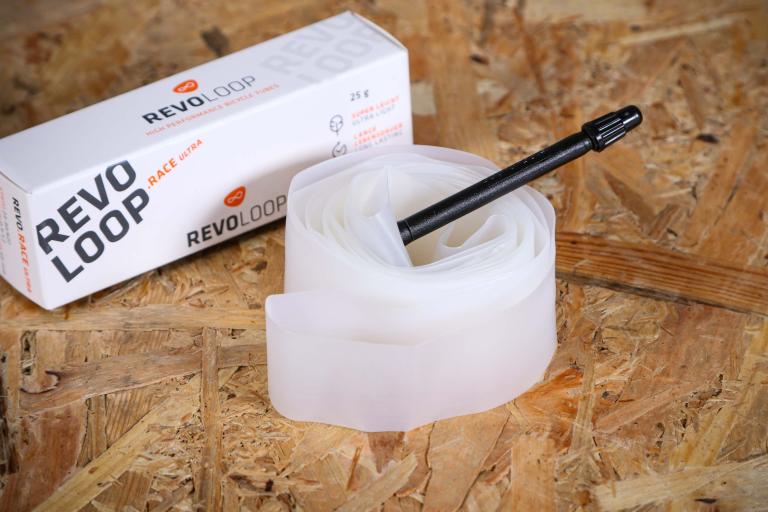
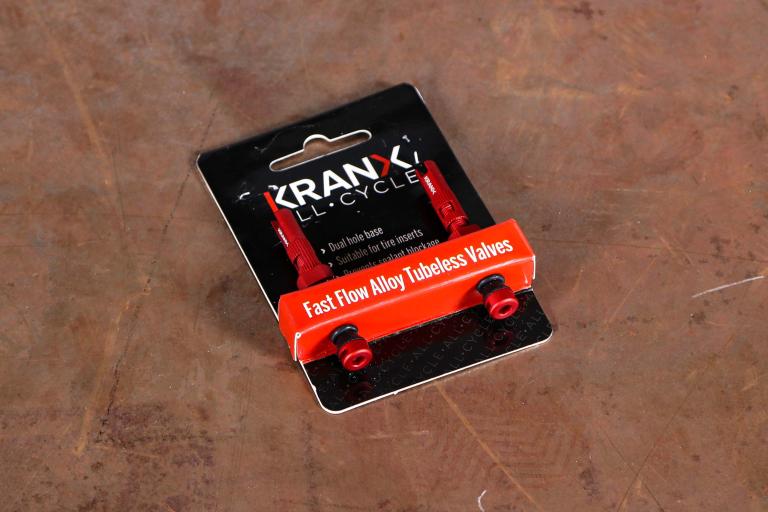
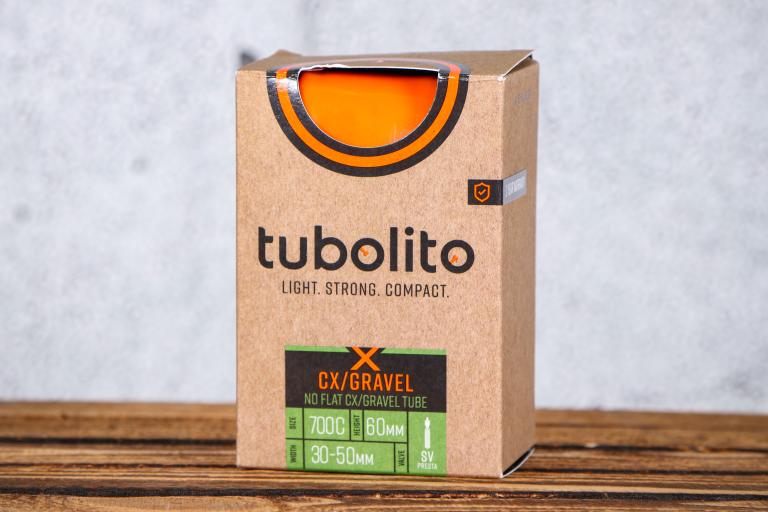
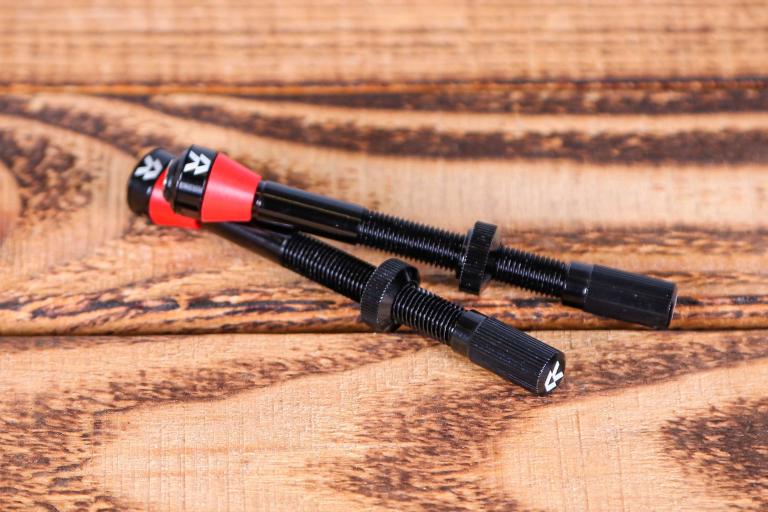
Add new comment
18 comments
I tried these. It didn't take long (500 miles) before I got a puncture on something small and sharp. Once I got home I found it was actually very easy to puncture the tube with something sharp so they are absolutely NOT puncture proof. I won't be buying any more.
Install Tubolito inside non-Marathon Plus tyre, take battery operated hedge trimmer, find hawthorn hedge (North Lancashire is well equipped with these), strew the results over the road and ride backwards and forwards. Report back.
Maybe they're not quite as expensive as it looks? Cheapest at present £18, so only £14 more than a standard inner tube at £4. And you might get through 2 or 3 standard in the time of one Tubolito, especially if you don't trust patched inner tubes, so the true cost comes down to £6 - £10.
I'd pay £6 - £10 to avoid a puncture, especially if it's cold or raining, or I'm in a hurry. It's less than an hour at minimum wage if a puncture makes you late for your job. How much is your time worth?
But I hate punctures - I ride Schwalbe Marathon Plus for everything except faster group rides.
Don't believe it. Nothing thin resists hawthorn!
I was honestly very pleasantly surprised at the size of Hawthornes that I pulled out of my tyres with latex tubes, maybe there's something in the idea that a very supple tube deforms around a thorn rather than is punctured by it.
But yeah, they were eventually defeated, I felt like I spent an Autumn just following the hedge cutters everywhere whilst trying out some paper thin CX tyres, asking for trouble!
very pleasantly surprised at the size of Hawthornes that I pulled out of my tyres with latex tubes
There are, of course, rare occasions where the hawthorn plugs its own hole in the tube, which can remain inflated for days. Don't hope for this, though!
So the raison d'etre of these tubes is their supposed puncture resistance, and yet as far as I can tell the reviewer did nothing to test this beyond using the tubes for normal riding within an already highly puncture resistant tyre?
Entirely fair criticism!
Believe it or not, I did request a spare tube to test on but didn't hear back from the distributor, so maybe they didn't want me to do so. I'm considering buying a spare myself and updating the review at a slightly later date.
I went ahead without the testing in place as my commission was already way overdue.
My only issue with the puncture testing is how exactly do you make it remotely scientific, or even fair?
I'm happy to take suggestions on the best way of doing it, but aside from hammering various sharp objects into the inflated tube by itself (which wouldn't be real world as there's no tyre involved, so less protection), I'm not sure how I could simulate it.
Even if I put a bunch of nails on a road and rode over them with a less puncture resistant tyre, would this be scientific? I'm not so sure.
Thoughts?
https://www.bicyclerollingresistance.com/the-test#puncture-resistance
Thanks. That's for testing puncture resistance on tyres though, not tubes.
I guess I could just try using the sharp/blunt needle method sans tyre, just for some kind of indication of its resistance to puncturing.
My concern with the sharp/blunt needle method sans tyre would be that it doesn't reflect real riding conditions - I know butyl tubes stretch significantly sans tyre, and presumably as they stretch they get thinner and easier to puncture. Furthermore, how much force is enough to prevent a puncture in the real world? If the "puncture proof" tube takes 5x more force to puncture, would that actually make the slightest bit of difference when the weight of a rider and bike is being applied every rotation over however many miles of riding?
A "bunch of nails on a road and ride over them" approach might seem more useful. This gcn video seems to suggest you can get a fairly high "hit" rate of impacts that would puncture a normal tube, although I have no idea how many retakes they needed... If you wanted to make it more scientific, the natural extension would be more repetitions and including a control (the control would be repeating each test with a butyl tube, ideally with the same tyre or at least the same model and similar amount of wear). Ideally you would in each test you would ride over the sharp objects then continue for another few miles, to simulate the potential for the object to work its way in over time. But I appreciate that this is sounding like a much more substantial undertaking than a standard road test for a review!
This. I purchased the CX tubolito as I'm going through a 'no tubeless for a while' phase that I'm sure will blow over once I've had the pleasure to change out a tube at 06:00 in the pouring rain. On the tubolito package it says that it's twice as resistant as a butyl tube. But what does that really mean? I'm sure my cotton t-shirt is more bullet-resistant than a tissue paper but that doesn't mean I'm willing to try stopping a bullet wearing it. Can't yet offer any feedback except to say that it feels really strange compared to butyl or latex. You do feel that it's lighter. Very comfy to ride. And more compact as a spare.
It's a methodology. Just seems a reasonable starting point given that a tyre is a prerequisite and you would have to factor in the length of the pointy bit and the thickness of the tyre for realworld usefulness.
It would be a consistent test and a baseline to work from.
Shame they don't do this puncture 'proof' option in a narrower width, would be great for a road bike commuter
There's the Road option for 18-28mm tyres that Neil tested a few years ago... - https://road.cc/content/review/tubolito-tubo-road-700c-inner-tubes-253312
cheers I've got them as spares for my posh bike (small saddlebag, these small and lightweight tubes are perfect)
Don't think they claim them as puncture prooof unfortunately and they are a bit expensive for the commute
As a avid user of the x city, I have been in contact with them about the x label for other sizes, and they say that they will also expand to the rest of the size range
I'll probably get these for one of my bikes, but not until the current tubes are worn out. It has 32 mm wide Gravel King tyres and I don't feel like the faff of setting it up tubeless. My all-road bike with 48 mm tyres is tubeless, and I won't go back on that one.